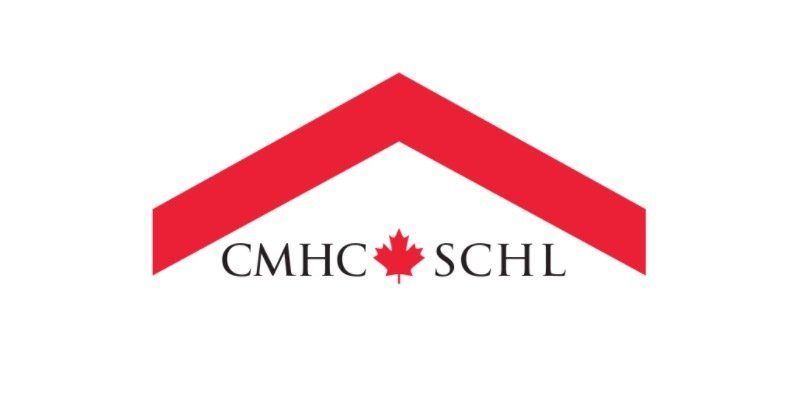CMHC Guidelines Changing July 1st 2020
Joe Tomkins • June 5, 2020

CMHC just shared the following press release. If you have any questions, please don’t hesitate to contact me anytime!
CMHC RELEASE JUNE 4th 2020
The COVID-19 pandemic is affecting all sectors of Canada’s economy, including housing. Job losses, business closures and a drop in immigration are adversely impacting Canada’s housing markets, and CMHC foresees a 9% to 18% decrease in house prices over the next 12 months. In order to protect future home buyers and reduce risk, CMHC is changing its underwriting policies for insured mortgages.
Effective July 1, the following changes will apply for new applications for homeowner transactional and portfolio mortgage insurance:
- Limiting the Gross/Total Debt Servicing (GDS/TDS) ratios to our standard requirements of 35/42;
- Establish minimum credit score of 680 for at least one borrower; and
- Non-traditional sources of down payment that increase indebtedness will no longer be treated as equity for insurance purposes.
To further manage the risk to our insurance business, and ultimately taxpayers, during this uncertain time, we have also suspended refinancing for multi-unit mortgage insurance except when the funds are used for repairs or reinvestment in housing. Consultations have begun on the repositioning of our multi-unit mortgage insurance products.
“COVID-19 has exposed long-standing vulnerabilities in our financial markets, and we must act now to protect the economic futures of Canadians,” said Evan Siddall, CMHC’s President and CEO. “These actions will protect home buyers, reduce government and taxpayer risk and support the stability of housing markets while curtailing excessive demand and unsustainable house price growth.”
These decisions are within CMHC’s authorities under the National Housing Act and are in anticipation of potential house price adjustment. We will continue to monitor market conditions and work with our federal colleagues on potential macro-prudential policy options.
CMHC supports the housing market and financial system stability by providing support for Canadians in housing need, and by offering housing research and advice to all levels of Canadian government, consumers and the housing industry.

How to Use Your Mortgage to Finance Home Renovations Home renovations can be exciting—but they can also be expensive. Whether you're upgrading your kitchen, finishing the basement, or tackling a much-needed repair, the cost of materials and labour adds up quickly. If you don’t have all the cash on hand, don’t worry. There are smart ways to use mortgage financing to fund your renovation plans without derailing your financial stability. Here are three mortgage-related strategies that can help: 1. Refinancing Your Mortgage If you're already a homeowner, one of the most straightforward ways to access funds for renovations is through a mortgage refinance. This involves breaking your current mortgage and replacing it with a new one that includes the amount you need for your renovations. Key benefits: You can access up to 80% of your home’s appraised value , assuming you qualify. It may be possible to lower your interest rate or reduce your monthly payments. Timing tip: If your mortgage is up for renewal soon, refinancing at that time can help you avoid prepayment penalties. Even mid-term refinancing could make financial sense, depending on your existing rate and your renovation goals. 2. Home Equity Line of Credit (HELOC) If you have significant equity in your home, a Home Equity Line of Credit (HELOC) can offer flexible funding for renovations. A HELOC is a revolving credit line secured against your home, typically at a lower interest rate than unsecured borrowing. Why consider a HELOC? You only pay interest on the amount you use. You can access funds as needed, which is ideal for staged or ongoing renovations. You maintain the terms of your existing mortgage if you don’t want to refinance. Unlike a traditional loan, a HELOC allows you to borrow, repay, and borrow again—similar to how a credit card works, but with much lower rates. 3. Purchase Plus Improvements Mortgage If you're in the market for a new home and find a property that needs some work, a "Purchase Plus Improvements" mortgage could be a great option. This allows you to include renovation costs in your initial mortgage. How it works: The renovation funds are advanced based on a quote and are held in trust until the work is complete. The renovations must add value to the property and meet lender requirements. This type of mortgage lets you start with a home that might be more affordable upfront and customize it to your taste—all while building equity from day one. Final Thoughts Your home is likely your biggest investment, and upgrading it wisely can enhance both your comfort and its value. Mortgage financing can be a powerful tool to fund renovations without tapping into high-interest debt. The right solution depends on your unique financial situation, goals, and timing. Let’s chat about your options, run the numbers, and create a plan that works for you. 📞 Ready to renovate? Connect anytime to get started!

Fixed vs. Variable Rate Mortgages: Which One Fits Your Life? Whether you’re buying your first home, refinancing your current mortgage, or approaching renewal, one big decision stands in your way: fixed or variable rate? It’s a question many homeowners wrestle with—and the right answer depends on your goals, lifestyle, and risk tolerance. Let’s break down the key differences so you can move forward with confidence. Fixed Rate: Stability & Predictability A fixed-rate mortgage offers one major advantage: peace of mind . Your interest rate stays the same for the entire term—usually five years—regardless of what happens in the broader economy. Pros: Your monthly payment never changes during the term. Ideal if you value budgeting certainty. Shields you from rate increases. Cons: Fixed rates are usually higher than variable rates at the outset. Penalties for breaking your mortgage early can be steep , thanks to something called the Interest Rate Differential (IRD) —a complex and often costly formula used by lenders. In fact, IRD penalties have been known to reach up to 4.5% of your mortgage balance in some cases. That’s a lot to pay if you need to move, refinance, or restructure your mortgage before the end of your term. Variable Rate: Flexibility & Potential Savings With a variable-rate mortgage , your interest rate moves with the market—specifically, it adjusts based on changes to the lender’s prime rate. For example, if your mortgage is set at Prime minus 0.50% and prime is 6.00% , your rate would be 5.50% . If prime increases or decreases, your mortgage rate will change too. Pros: Typically starts out lower than a fixed rate. Penalties are simpler and smaller —usually just three months’ interest (often 2–2.5 mortgage payments). Historically, many Canadians have paid less overall interest with a variable mortgage. Cons: Your payment could increase if rates rise. Not ideal if rate fluctuations keep you up at night. The Penalty Factor: Why It Matters More Than You Think One of the biggest surprises for homeowners is the cost of breaking a mortgage early —something nearly 6 out of 10 Canadians do before their term ends. Fixed Rate = Unpredictable, potentially high penalty (IRD) Variable Rate = Predictable, usually lower penalty (3 months’ interest) Even if you don’t plan to break your mortgage, life happens—career changes, family needs, or new opportunities could shift your path. So, Which One is Best? There’s no one-size-fits-all answer. A fixed rate might be perfect for someone who wants stable budgeting and plans to stay put for years. A variable rate might work better for someone who’s financially flexible and open to market changes—or who may need to exit their mortgage early. Ultimately, the best mortgage is the one that fits your goals and your reality —not just what the bank recommends. Let's Find the Right Fit Choosing between fixed and variable isn’t just about numbers—it’s about understanding your needs, your future plans, and how much financial flexibility you want. Let’s sit down and walk through your options together. I’ll help you make an informed, confident choice—no guesswork required.

Bank of Canada maintains policy rate at 2¼%. FOR IMMEDIATE RELEASE Media Relations Ottawa, Ontario January 28, 2026 The Bank of Canada today held its target for the overnight rate at 2.25%, with the Bank Rate at 2.5% and the deposit rate at 2.20%. The outlook for the global and Canadian economies is little changed relative to the projection in the October Monetary Policy Report (MPR). However, the outlook is vulnerable to unpredictable US trade policies and geopolitical risks. Economic growth in the United States continues to outpace expectations and is projected to remain solid, driven by AI-related investment and consumer spending. Tariffs are pushing up US inflation, although their effect is expected to fade gradually later this year. In the euro area, growth has been supported by activity in service sectors and will get additional support from fiscal policy. China’s GDP growth is expected to slow gradually, as weakening domestic demand offsets strength in exports. Overall, the Bank expects global growth to average about 3% over the projection horizon. Global financial conditions have remained accommodative overall. Recent weakness in the US dollar has pushed the Canadian dollar above 72 cents, roughly where it had been since the October MPR. Oil prices have been fluctuating in response to geopolitical events and, going forward, are assumed to be slightly below the levels in the October report. US trade restrictions and uncertainty continue to disrupt growth in Canada. After a strong third quarter, GDP growth in the fourth quarter likely stalled. Exports continue to be buffeted by US tariffs, while domestic demand appears to be picking up. Employment has risen in recent months. Still, the unemployment rate remains elevated at 6.8% and relatively few businesses say they plan to hire more workers. Economic growth is projected to be modest in the near term as population growth slows and Canada adjusts to US protectionism. In the projection, consumer spending holds up and business investment strengthens gradually, with fiscal policy providing some support. The Bank projects growth of 1.1% in 2026 and 1.5% in 2027, broadly in line with the October projection. A key source of uncertainty is the upcoming review of the Canada-US-Mexico Agreement. CPI inflation picked up in December to 2.4%, boosted by base-year effects linked to last winter’s GST/HST holiday. Excluding the effect of changes in taxes, inflation has been slowing since September. The Bank’s preferred measures of core inflation have eased from 3% in October to around 2½% in December. Inflation was 2.1% in 2025 and the Bank expects inflation to stay close to the 2% target over the projection period, with trade-related cost pressures offset by excess supply. Monetary policy is focused on keeping inflation close to the 2% target while helping the economy through this period of structural adjustment. Governing Council judges the current policy rate remains appropriate, conditional on the economy evolving broadly in line with the outlook we published today. However, uncertainty is heightened and we are monitoring risks closely. If the outlook changes, we are prepared to respond. The Bank is committed to ensuring that Canadians continue to have confidence in price stability through this period of global upheaval. Information note The next scheduled date for announcing the overnight rate target is March 18, 2026. The Bank’s next MPR will be released on April 29, 2026. Read the January 28th, 2026 Monetary Report

